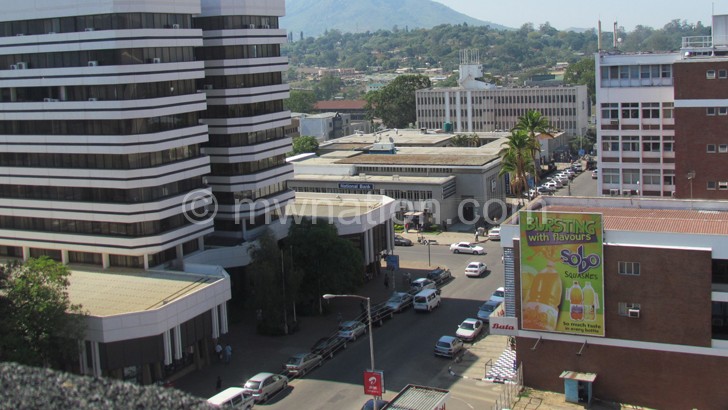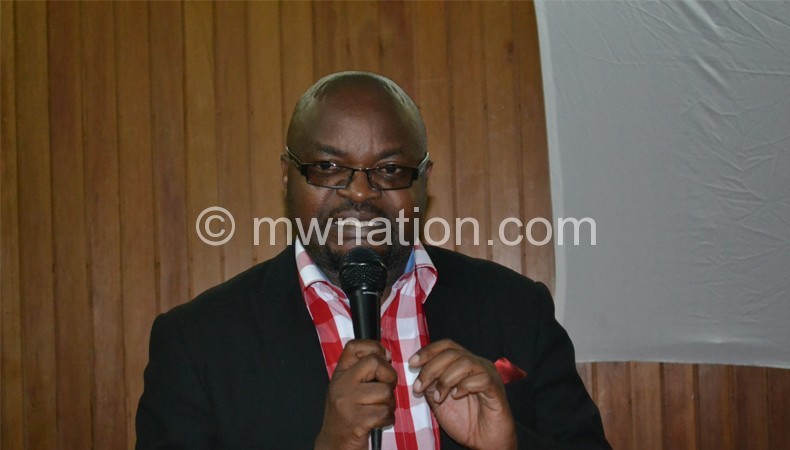Councils in money woes
- Owed about K15bn in city rates
- Thousands of properties not in council books
Despite operating on shoe-string budgets that has led to their failure to provide basic services such as refuse collection, city councils are sitting on K15 billion in uncollected city rates.
We have also found out that in addition, high level fraud and corruption are compounding local councils’ woes.

Weekend Nation findings are based on reviews of an audit report by the National Audit Office (NAO) audit report, a World Bank report titled ‘Malawi Urbanisation Review Leveraging Urbanisation for National Growth and Development’, a report by ActionAid Malawi and interviews with economic governance experts.
The city councils’ failure to improve revenue collection is happening despite the blossoming infrastructural development in the cities.

But the city councils, while pleading guilty to failure to respond to residents’ expectations of on-demand services and other statutory obligations, attribute the problem to weak and archaic by-laws.
They allege that the regulations they have been using for years give estate owners leeway in honouring property rates and other fees.
For instance, about two years ago, the country’s four city councils were owed around K13 billion while other local councils (town, municipals and districts) were also struggling to recover unspecified amounts of money in unsettled rates.

Today, cumulatively, the amount that the four city councils—Blantyre City Council (BCC), Lilongwe City Council (LCC), Mzuzu City Council (MCC) and Zomba City Council (ZCC)—tops K15 billion—some of which date to a decade ago, according to the councils.
This comes at a time when there is increasing discontent from residents about the councils’ broken services in sanitation, road infrastructure, and drainage systems, among others.

But, in separate interviews, officials from the four councils indicated in the past two weeks that over the years, they employed various techniques to recover their money.
At present, LCC is owed K11 billion by its 47 000 property owners, according to the council’s spokesperson Tamara Chafunya. This is the biggest amount.
Mzuzu and Zomba city councils come second with K1.7 billion each while Blantyre, the country’s commercial city, surprisingly has the smallest unpaid amount at about K500 million, from over K2 billion two years ago.
However, Chafunya said LCC was implementing the 2015/20 Local Revenue Enhancement Strategy to recover the money from defaulters.
Among others, LCC commenced litigation against some defaulters, embarked on door-to-door visits and is engaging debtors to remind them to pay their bills and sensitising them on the implications of their failure to do so.
But LCC arrears could be a product of its failure to enforce its by-laws and enhance collection of property rates.
“LCC uses the penalty provided under Section 86(3) of the Local Government Act [LGA]. LCC charges four percent per month surcharge on debts that remain unpaid after 60 days when the rate was due,” said Chafunya.
She added that Section 91 of LGA provides for councils to seize and sell the property, but she confessed that the council “is yet to enforce this provision”.
On his part, MCC spokesperson MacDonald Gondwe observed that for some time, they had been using obsolete by-laws, which were affecting their operations.
“They [by-laws] had no teeth to bite. That was affecting us, but we now have new statutes that give us the mandate to pounce on debtors,” he said.
Similarly, Mercy Chaluma of Zomba City Council said their new proposed by-laws, which are yet to be assented to, are “strong enough to force clients to comply and pay city rates”.
Based on the 2015 Zomba Quinquennial Valuation Roll (QVR), Zomba City bills about 5 153 clients out of whom 400 are in default of amounts above K1 million each.
South Africa-based urban development specialist Qolocha Mwandira noted that city councils would continue struggling unless regulations are enforced.
He said: “Thousands of properties in our cities of Lilongwe and Blantyre, for example, remain unregistered with the councils and by-laws do not work on them, in turn, such property owners don’t pay anything.”
Section 13 (2) of the BCC by-laws (plot allocation in townships and improvement areas) that states that the council shall issue leases to all holders and register the leasehold title with the Land Registrar.
Further, Section 105 of Local Government Act stipulates that any person who contravenes any provision of by-laws commits an offence and on conviction shall be liable to a fine of K2 000 and in the case of continuing offence, to a fine of K200 for each day the offence continues after conviction and six months imprisonment or to both fine and imprisonment.
BCC public relations manager Anthony Kasunda confessed that several properties were unregistered and attributed this to the council’s QVR which last took place in 2005.
Kasunda said currently BCC was only billing 37 000 property owners, who are in their data base, meaning that about 233 000 property owners do not pay anything to the city council.
BCC director of commerce, industry and trade Denis Chinseu said, two weeks ago, that property rates, which are taxes levied on all properties in the city, are the major source of revenue as they contribute approximately 65 percent of their locally generated revenue.
Charles Chunga executive director of Malawi Local Government Association (Malga), an umbrella body of the country’ councils confessed that councils have not been aggressive in revenue collection and enforcing by-laws.
“Councils need to devise new systems of collecting revenues… In some councils, there is political interference where politicians tell rate payers not to pay in order to gain political mileage. Politicians should stop meddling in councils business,” said Chunga.
In its 2017 report titled ‘Malawi Urbanisation Review Leveraging Urbanisation for National Growth and Development’, the World Bank also faulted the country’s councils for failing to maximise revenue collection despite having a large base and considerable latitude in setting property tax rates.
Other well placed officials, who asked for anonymity, said what councils collect is only one percent of what they are supposed to be collecting from rate payers.
Economics Association of Malawi (Ecama) executive director Maleka Thula said if the councils were able to collect all the fees accrued, they would be creating more fiscal space for central government to focus on huge national investments.
A study by ActionAid Malawi, whose report was issued in June 2017, revealed that high-level fraud and corruption were the major factors affecting councils’ operations.
The most recent incident was an audit report released in March 2019 by NAO which established that about K5.9 billion could not be accounted in the local councils for the fiscal year ended June 30 2018.





